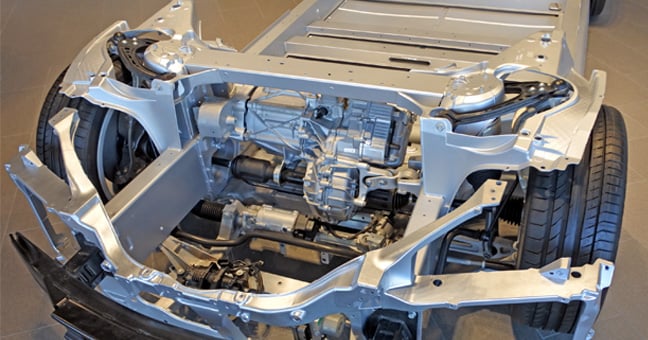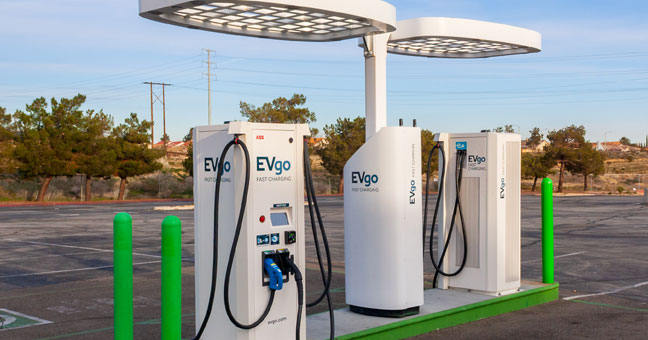Inflation has been outpacing wages for many years, which has created significant hardship for workers and forced them to extend the life of key necessities such as their personal vehicles. Kelley Blue Book (KBB) has found that the average vehicle life has now been extended to 12 and a half years, in an effort to avoid adding a new car payment to already strained budgets. Timely, cost-effective, and quality vehicle maintenance is necessary to attain this ambitious lifespan, and customers typically have many local options for servicing and repairs. The parts and services industry has become an enormous market ($137 billion in 2022 from dealerships alone) with intense competition, so how can these businesses generate the customer loyalty and positive experiences needed to thrive with repeat business and word-of-mouth recommendations?
Read MoreJul 19 2023
Topics: Parts & Services, Service Data
Jul 10 2023
In many cases, vehicle data and VIN decoding solutions are the foundation of your automotive product’s features and processes. You may have invested a great deal of effort to integrate with your current provider. Perhaps you've migrated to a different data provider in the past and have experience working through the headaches of disparate naming conventions and issues with style/vehicle IDs. You likely have a customer base that relies on you for progressive development and new features, as well as a busy road map ahead.
Read MoreTopics: VIN
Jun 26 2023
In previous articles of this ADAS blog series, we discussed the increasing prominence of ADAS and its impact across the auto industry, as well as some of the challenges with these advanced safety technologies. As ADAS systems continue to grow in their prominence, with a solid amount of data accumulated over the last few years to prove their efficacy, as well as their limitations, manufacturers are constantly looking for ways to improve these systems and prevent even more accidents.
This article includes some of the significant trends shaping the future of ADAS as the auto industry works to transform automotive safety and autonomous driving.
Read MoreTopics: Automotive Technology, ADAS
Jun 7 2023
The automotive industry is running parallel races toward fully electrified and fully autonomous vehicles, and both races have a deceptively close finish line. EVs will become the norm within 10 years due to a combination of government legislation and manufacturer mandates – Progressive estimates that EVs could comprise 40% of car sales by 2030. Vehicle autonomy, meanwhile, remains a top priority for OEMs as well, with the market projected to reach $200 billion by the end of the decade. Mercedes-Benz is already certified for Level 3 autonomy, a standard that encompasses conditional hands-free driving, suggesting that Level 5 (totally automated driving) is a feasible goal for automakers more quickly than initially anticipated.
The technology involved in developing electrified, autonomous vehicles will not be universal; each feature package will have its own unique benefits, drawbacks, and relationship to road conditions and driver capabilities. Consequently, auto insurers cannot treat “ADAS” or “EV” as monolithic or even loosely segmented variables in their risk analysis; all levels of the organization must have a comprehensive understanding of their car’s technology stack to maintain a balanced risk-to-rate ratio. 
Read MoreMay 16 2023
In a previous article, we discussed some of the key components of EVs and how they differ from the makeup of traditional internal combustion engine (ICE) vehicles.
Read MoreTopics: Electric Vehicles
May 9 2023
EVs continue to change the landscape of the auto industry at a rapid pace and many questions arise for consumers and businesses alike. In our previous EV article, we covered the topic of EV charging and charging infrastructure, one of the biggest factors in the adoption of EVs. As a follow-up, we thought it would be helpful to address some of the key components of an EV, as well as some of the ways in which they differ from their internal combustion engine (ICE) counterparts.
Read MoreTopics: Electric Vehicles
May 1 2023
VIN Decoding solutions offer multiple levels of information for vehicle inquiries. Pattern-level VIN decoding provides information from the World Manufacturer Identifier (WMI), Vehicle Descriptor Section (VDS), the vehicle’s model year, and production plant. Option-level VIN decoding includes the serial number of the specific vehicle and often presents “as-built data” from the Original Equipment Manufacturer (OEM), such as installed options and packages, as well as the exact exterior and interior colors.
Read MoreTopics: VIN
Mar 28 2023
Electric vehicles (EVs) are continuing to grow in popularity due to their environmental friendliness, cost savings, lower maintenance, and improved performance. However, one of the greatest obstacles holding back the worldwide adoption of EVs is infrastructure limitations for charging stations, especially in the U.S.
Read MoreTopics: Electric Vehicles
Mar 21 2023
Traditional risk models in the auto insurance space incorporate multiple data points, including vehicle details, the driver’s safety record, the vehicle’s geographic location, and that location’s associated weather patterns. While these factors may be weighed differently by each insurer’s model, the entire auto industry is now facing the reality that increased vehicle complexity will force a significant change to risk analysis.
Read MoreTopics: Automotive Data, Insurance
Feb 7 2023
All-wheel drive (AWD) and four-wheel drive (4WD, 4X4) systems continue to gain traction in the marketplace and, as a result, are widely available on most of today’s best-selling vehicles. However, advancing technology and OEMs’ marketing spin are making it increasingly difficult to discern between the two features, leaving everyone – from consumers to dealerships and vendors – confused about whether a given vehicle is technically AWD or 4WD.
Read MoreTopics: Vehicle Equipment










